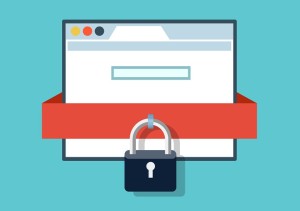The Answer Lies in the Cloud
It happens. A lot. Every year, thousands of companies purchase and implement ERP solutions with the best of intentions ranging from decreasing operating expenses to increasing efficiencies and updating technologies. These companies also invest – and reinvest – annually in the publisher’s Business Care Plans without realizing its biggest benefit: enhancement releases.
A significant portion of a publisher’s Business Care Plan is strategically reinvested in the product in the form of usability enhancements, product features, security patches, and more. Still, companies become version-locked, never upgrading the initial software implemented that promised so many long-term advantages.
The question is why – and how do you avoid Version-Locked ERP?
Why do so many companies become version locked?
It’s not a straight forward answer. In some cases, customers have become version locked because of circumstances that make perfect business sense like:
- Customizations that were required to deliver required capabilities.
- Complicated integrations to external solutions.
- Third party add-ons that require compatibility synchronization and multiple vendor’s support.
In the examples above, the cost to recreate, test and implement customizations with each new release can become too expensive to justify. In too many instances, though, companies voluntarily become version locked.
What are the negative effects of version locked software?
In addition to missing out on security patches, software bug fixes, and new enhancement releases, version lock increases the risk of:
- Running your business on an unsupported software version.
- Increased vulnerability to security threats and viruses.
- Operating with outdated user interfaces and productivity tools like business intelligence reporting.
- Becoming susceptible to non-compatible infrastructure including operating systems, databases and Windows Office interconnectivity.
If any of the following statements sound familiar, you may have voluntarily become version locked on your current software.
- There doesn’t appear to be any value or enhancement in the most recent upgrade.
- We can’t afford to upgrade our hardware or server infrastructure.
- We don’t have the time or money to upgrade.
- We’re not a target to security breaches and viruses.
- It’s not broke so why fix it?
Cloud ERP might be the answer
Maybe Cloud ERP is the better choice for your organization because it provides:
- Automatic updates that are frequently scheduled during off-peak hours.
- A single, monthly fee that includes the software usage rights, hosting service, support and updates.
- Security and virus protection managed by the Cloud service provider.
- Disaster mitigation through backup servers, database replication and alternate datacenters for guaranteed uptime.
- Minimal IT investment to maintain hardware infrastructure and client workstations because software is accessible through web browsers, not client-server applications.
Cloud ERP has other advantages like accessibility, mobility and simplification, to name a few. If your company is version locked while paying its annual Business Care Plan, maybe it’s time to consider a Cloud solution or deployment.



